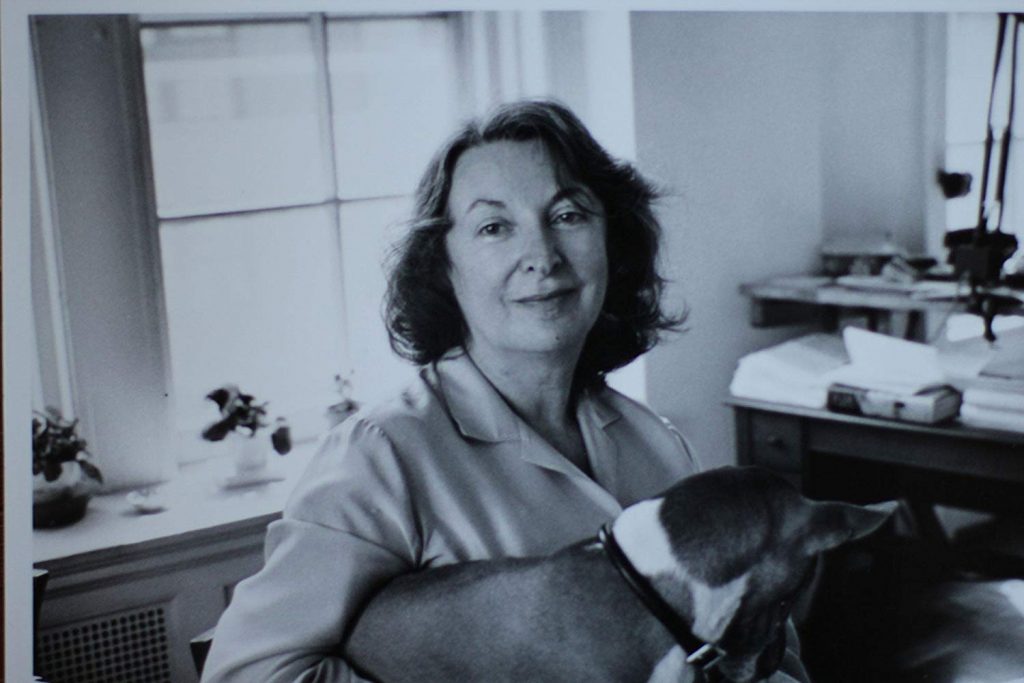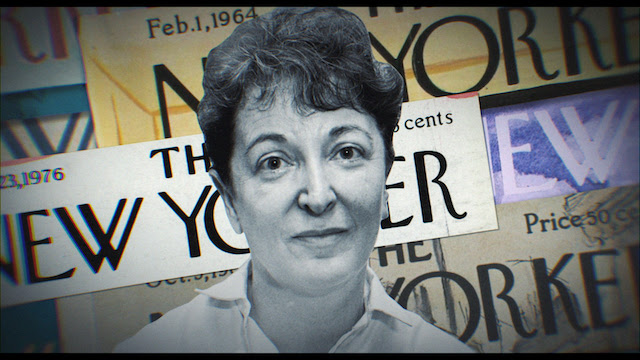A new documentary about the legendary New Yorker film critic Pauline Kael opens on Dec. 25 at the Film Forum, at 209 W. Houston St.
“What She Said: The Art of Pauline Kael,” directed by Rob Garver, explores Kael’s life and her impact as a film critic who loved movies and the arts, and was loved and sometimes hated for her often blunt writing and opinions.
Pauline Kael (1919-2001) grew up in California, and took a winding road to becoming a film critic, and eventually a well-known critic at The New Yorker, where she worked from 1968-1991 as one of the most influential critics of the time.
Kael had a daughter in 1948, and in the following years would work various jobs to provide support, though she always had it in her mind to be a writer.
Garver said he was surprised to learn that Kael acquired a decent job in advertising in the 1950s, and the movie tells of her being promoted and getting her name put on an office door. But she knew she had to quit, because she’d be giving up her goal of becoming a writer with her own voice.
Even when she wrote for The New Yorker, it was only for six months each year, and she struggled to earn a living wage, supplementing with other work like speaking engagements.
Kael wrote about film for magazines in the 1950s, and worked to get away from an academic style and toward how people talk about movies. The film notes her love for movies of the 1930s and silent films, and she was passionate about her opinions. She once broke up with a guy over a disagreement about “West Side Story.”
The documentary uses famous film clips to help tell the story of her life, whether punctuating an emotion or showing a visual similarity of an event that happened to her. Garver got the idea as a way of adding in more fun.
“She had this great sense of humor and was fun, and fun to read,” Garver said, “so the movie about her life should be fun as well.”

There are also interview clips of Kael, and home movies, and her writing is read in the film by Sarah Jessica Parker.
In one interview clip, Kael talked of women having more presence in the film industry than the world of critics, saying that men’s egos had a harder time accepting that a woman could be equal when it comes to using logic and reason.
Over 35 people were interviewed for the documentary, including Quentin Tarantino, David O. Russell, Alec Baldwin, and other filmmakers, critics and artists. Tarantino notes that Kael could change the reader’s opinion of a film with one smart and subtle observation.
The film includes some peoples’ opinions that she could be overly harsh at times in her criticisms, with some saying she could be cruel and get too personal.
“She was divisive, and loved and hated,” said Garver, who added that he wanted to tell an honest story of Kael’s life, including when people were hurt by her critiques. “That’s part of who she was and she was no saint, so I had to show that side,” Garver said.
Kael was a champion of young filmmakers when she liked their work, including Scorsese, Spielberg and de Palma, and her influence made her part of film movements, rather than just writing about them.
“She wasn’t just observing it, she was part of it,” said Garver, who had the idea for the film about five years ago and said he read her a lot in college. “It was her voice, her writing voice, she was a different critic,” he said. “A different writer than any other critic at the time.” Garver said she wasn’t a critic but a writer whose subject was the movies.
The movies includes many letters that Kael received over the years from famous people in film who read her reviews, with some admiring her and some otherwise. “But I think there was a respect there,” Garver said. “She was relentless, she didn’t back down from her opinions. And she was always interesting to read.”

































